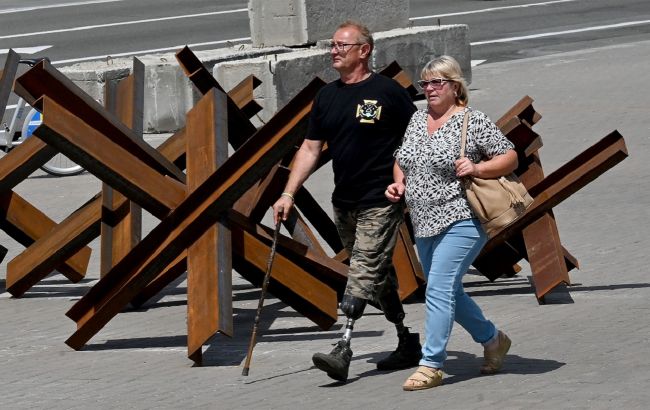Where defenders can look for work and why it is still difficult for some to obtain combatant status – in an RBC-Ukraine report.
Artem Melnyk joined the Territorial Defense Volunteer Battalion "Mriya" in the first days of Russia’s invasion in February 2022. Already in March, after a Russian Kinzhal missile strike, he suffered severe burns on 35% of his body and multiple fractures. He had previously worked as a cook, but due to his injuries, he could no longer return to his job.
While undergoing 10 complex surgeries and rehabilitation, he faced a bureaucratic problem: he could not receive the benefits guaranteed to servicemen. Although defenders from volunteer units have already been equated in status with other servicemen of the Defense Forces, many like him are now fighting in court to obtain combatant status (UBD) and related benefits.
But after his injury, he did not give up: he decided to change his profession, is now studying design, and at the same time is slowly gathering documentary evidence that he truly defended his homeland.
How a volunteer defender can obtain UBD status and where to look for work after returning from war – RBC-Ukraine tells through the story of one defender.
On injury, rehabilitation, and "civilian" disability status
Kyiv resident Artem Melnyk joined a volunteer territorial defense unit just days after the start of the full-scale war. In March, when Russian forces were still unsuccessfully trying to break through to Kyiv via Bucha and Irpin, he was carrying out tasks together with the 72nd Separate Mechanized Brigade.
At the moment of the missile strike late in the evening, he was sitting in a car about 200 meters from the epicenter of the explosion. For some reason, Artem didn’t even hear the sound of the blast. Suddenly, he saw a fiery wave rushing toward him. There was no time to react – he only managed to cover his face with his hands. His hands suffered the worst burns.
Artem was saved in a burn center. He underwent 10 skin graft surgeries. He spent a long time in intensive care, then had to learn to walk again: apart from his hands, his left leg was badly injured, and he completely lost hearing in one ear. Rehabilitation was long, and he received significant help from the charity project "Neopalymi" (“The Unburned”).
"They are wonderful professionals. For anyone facing a similar situation with burn injuries, I recommend contacting them. They will definitely help. The assistance is completely free of charge both for military personnel and civilians injured by the war," says the defender.
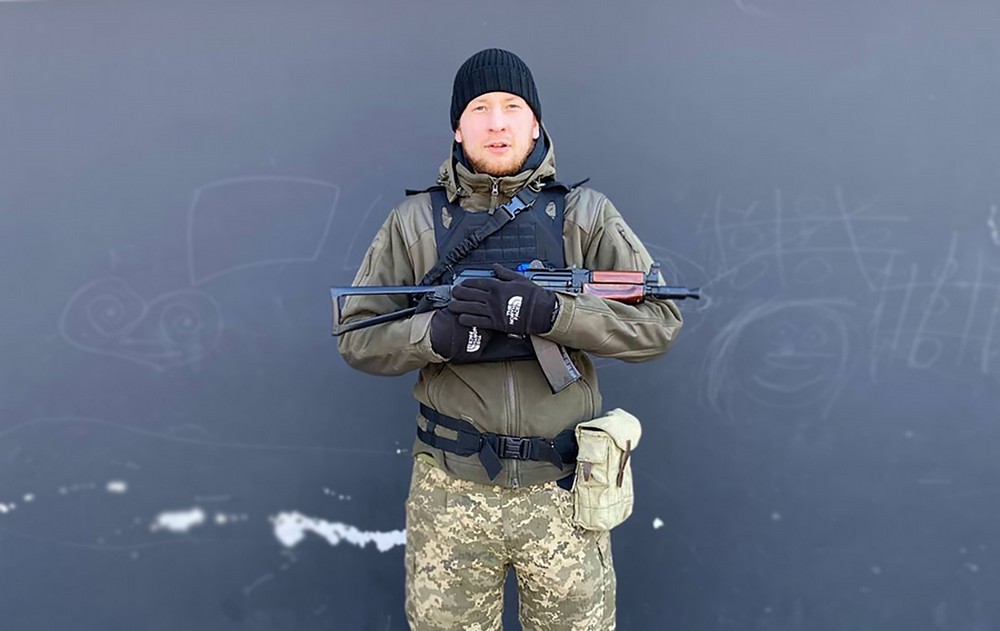
Photo: Artem Melnyk at the beginning of Russia’s invasion in 2022 (personal archive)
He stresses that obtaining UBD status is important to him not for the payments, but to have official recognition that he truly defended his homeland alongside his comrades. He is now waiting for a response from the brigade regarding confirmation of his participation in combat, which would allow him to eventually obtain UBD status. This is equally important for all other defenders who risked their lives and now need help themselves.
While waiting for the matter to be resolved, he took a simpler route and obtained a civilian disability group. At the first medical commission, he was barely examined, no questions asked about his condition. He was given the third group for one year.
"They only said: if you have questions – ask. I asked why the third group, and they replied: ‘you can read about it on the internet,’" Artem recalls. He decided to appeal the decision and was referred to the Central Medical Commission in Kyiv. At the second examination, the inspection was very thorough. His disability status was extended for two years.
With the 3rd group, he receives payments of 2,300 UAH per month. But he doesn’t complain. "Much better than nothing," says Artem.
The mother of his comrade is now seeking recognition that her son died as a result of the war in 2022 during the same missile strike. The soldier was at the very epicenter of the impact. The strike was so powerful that his remains could not be identified even by DNA. Artem says there are many such cases across the country, and it is important for people to finally receive justice, and for such matters to be resolved without the need for lengthy court battles.
Why it is difficult for volunteer units to obtain UBD status
In 2023, Ukraine adopted a law equating members of volunteer units with the Armed Forces, granting their families the same social benefits as servicemen. Volunteer units may also carry out combat missions, but they are subordinate to the Territorial Defense Forces, which in turn reports to the Armed Forces.
Members of volunteer units combine both civilian and military aspects in their work, explains RBC-Ukraine’s legal expert from "Riyako & Partners," Kateryna Anishchenko. She believes that among all servicemen, members of volunteer units are the most vulnerable.
"They perform their military duty, but are funded not by the state, but by entrepreneurs and local authorities. As we understand, this funding is not always stable. Also, members of such units cover their sick leave expenses themselves. Still, in general, the same benefits apply to them and their families as to other servicemen," she says.
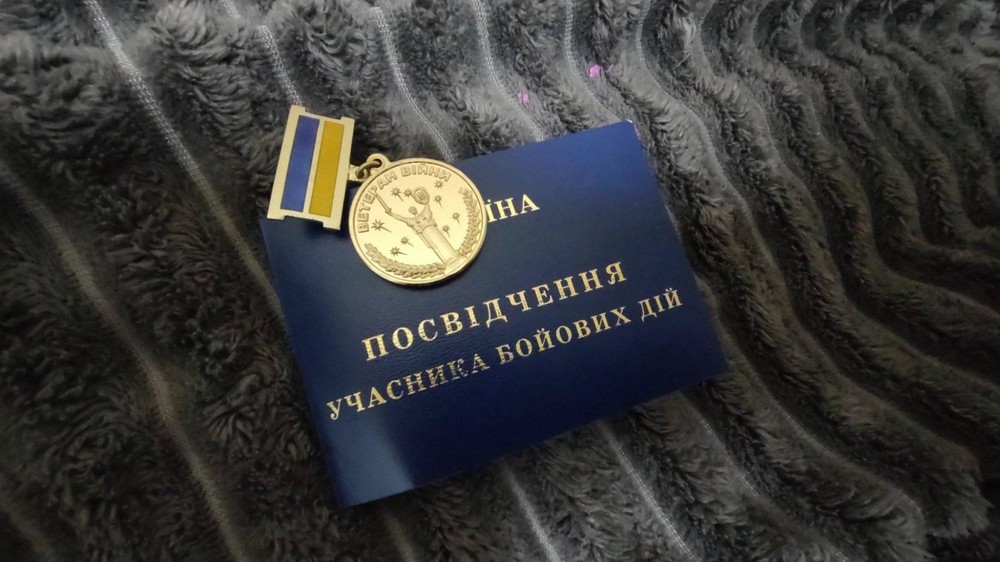
Photo: For members of volunteer units, it can be difficult to obtain UBD status (facebook.com/dima_schors)
In practice, it can be challenging to obtain, for example, a certificate confirming participation in combat or an injury report. These documents are issued by a unit commander to servicemen who later wish to receive UBD status. The difficulty arises because the Cabinet of Ministers has not yet issued additional clarifications about these documents.
"So to obtain UBD, a defender needs a certificate from the commander stating that during a combat mission he was issued combat orders. But he cannot be issued such orders because he is a member of a volunteer unit. The law was adopted, which is good. But they did not specify which document exactly is needed for such defenders to receive UBD. In status, they were equated with the Armed Forces, but no changes were made to the documentation," explains the lawyer.
In practice, the only way to achieve this now is through court. Both the defender himself and his family can file a lawsuit.
"The court then investigates whether the person performed combat tasks, even in the absence of a combat logbook. Based on the law, the court may recognize the defender as a combatant. Or it can oblige the Ministry of Defense to issue a certificate confirming his participation in combat. This would also be grounds for obtaining UBD status," adds Anishchenko.
How veterans can return to civilian life and work
It often happens that a veteran returns from war and feels that life is completely different. Because of physical limitations, he can no longer work at his previous job. At the same time, he still has to collect documents, apply for certificates, and prove things. In such situations, the main thing is not to withdraw into oneself and to keep looking for solutions. They will be found.
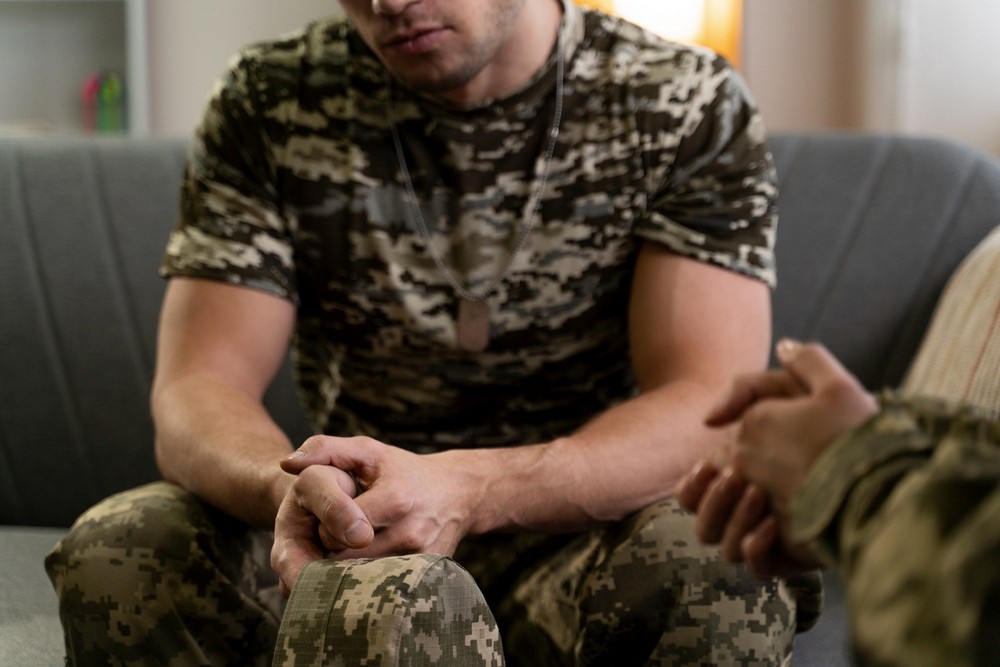
Photo: Returning from the front is often psychologically difficult for veterans, and most do not want to go back to their previous jobs (freepik.com)
"It was very hard for me psychologically when I was in intensive care and could not get out of bed for a long time. But when I started to recover and pull myself up, I realized all these limitations were temporary. When I started walking again, the heavy state passed on its own. The main thing is to start with something. And have activities. Sessions with a psychologist, drawing. Things will get better. Gradually, but they will," shares veteran Artem Melnyk.
He could no longer return to his former job as a cook due to his injuries. Volunteers and doctors from the "Neopalymi" project, who had already become friends, advised him to reach out to the "After Service" foundation. There, Artem received support to change his profession. A case manager helped him explore IT careers, and Artem chose to study UI/UX Design at Mate Academy.
"At first, I thought of studying programming, but realized it wasn’t quite for me. I like something more dynamic. I chose app design. It turned out to be not easy at all. Training takes four hours a day. Completing some tasks was more difficult than I expected. I try to find time during the day to get everything done," says Artem.
In Ukraine, employers will also need to reconsider their attitude toward veterans. In Artem’s opinion, if someone needs several months for retraining, companies should not refuse but accept it. The state should also support this – for example, just as companies get tax benefits when hiring people with disabilities, similar incentives could apply to hiring veterans.
"Military personnel need to understand: the main thing is that you survived. Yes, there are injuries, but life doesn’t end there. With depression or PTSD, you shouldn’t be afraid to turn to psychologists. Injuries differ. Many do not allow you to return to your old job. But there is remote work, for example. A small-steps strategy helps many: start with small tasks that lead to bigger ones," says the veteran.
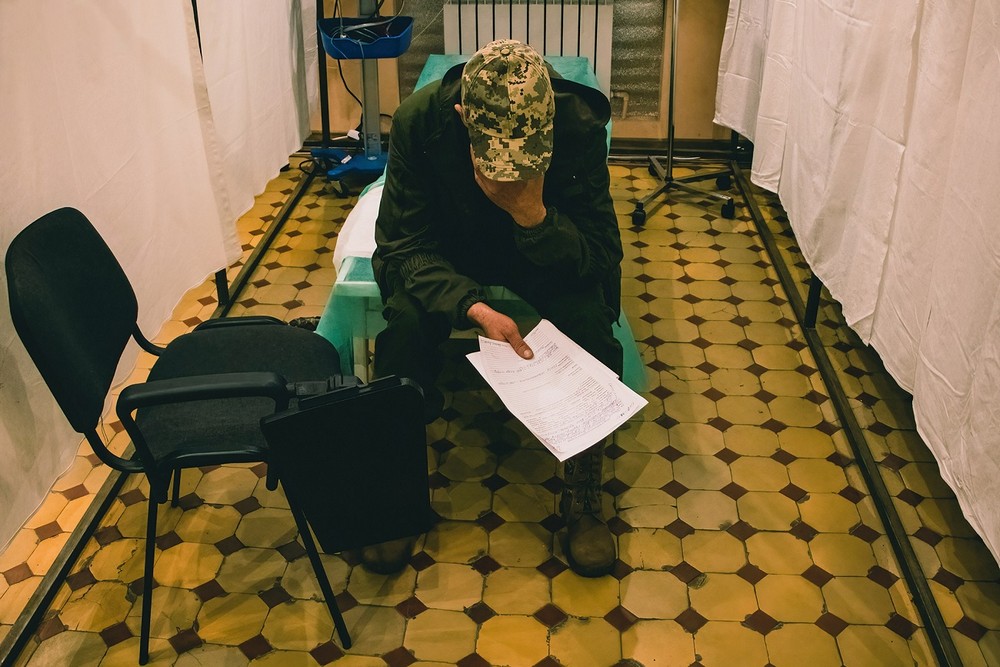
Photo: Veterans often face long bureaucratic procedures when applying for certificates (Getty Images)
60% of veterans want to change professions. Where to turn
The number of foundations supporting veterans is growing. Even if you live in a small village, you can contact them online. They will help or at least guide you on where to go.
According to the "After Service" foundation, at least 60% of veterans returning from war do not want to return to their previous professions. Some cannot work as sales managers due to PTSD, while others cannot go back to being fitness trainers because of spinal injuries.
The issue of finding new professions is highly relevant, and the demand will only grow, says RBC-Ukraine’s case manager from the foundation and National Guard veteran, Oleksandr Vitsan.
The foundation assists in several ways. Some veterans simply don’t know how to write a resume, so staff help with that. Others face legal issues, and lawyers provide support. They also help find courses or education programs for retraining, and later – with job search.
Now, the state is also offering more opportunities for veterans to find work. Registration at employment centers is possible online, and unemployment benefits can also be assigned remotely. Regional employment centers currently offer more than 170 professions specifically for veterans.
"Veterans can also receive financial vouchers and use them for training. There are educational and business grants available. But keep in mind that while you are registered at the employment center as a veteran, you will receive part of the base salary, not the 100,000 combat pay. Combat pay is more of a bonus. Payment amounts are always calculated individually," says the case manager.
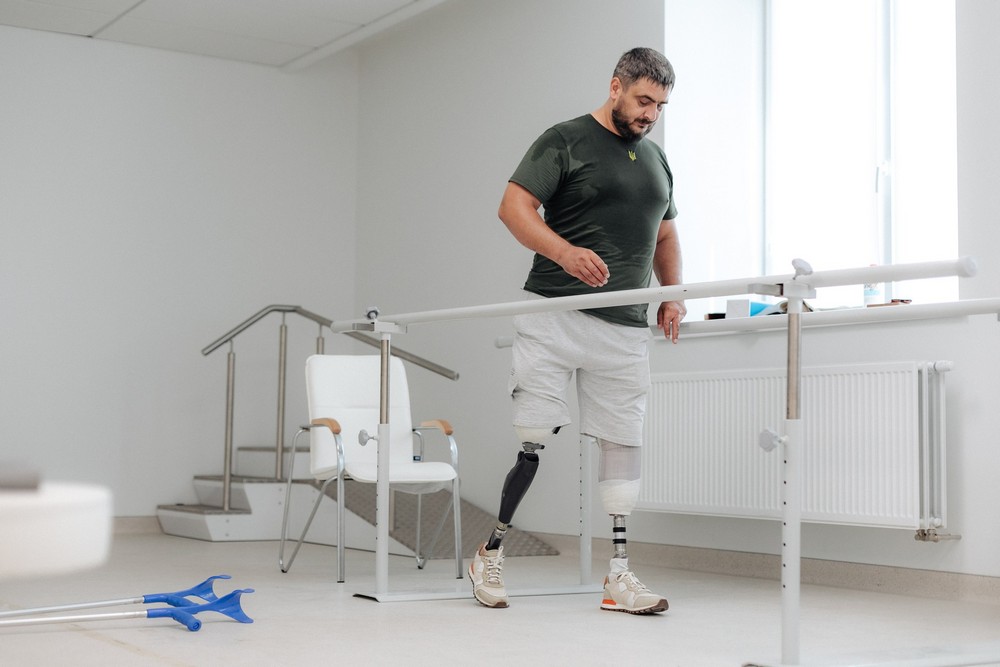
Photo: In Ukraine, more and more charities are helping veterans (facebook.com/Superhumans.Center)
A lot of information on veteran support can be found on Facebook. You can also contact government institutions directly.
"I was pleasantly surprised by the situation in 2024 regarding job opportunities for veterans. There have been significant positive changes. You can also reach out to us. We will help however we can. The more people involved in solving a problem, the greater the chance to resolve it. I want to emphasize that we respect and support veterans who are bringing Ukraine’s victory closer. And we know their true value," stresses Oleksandr.


